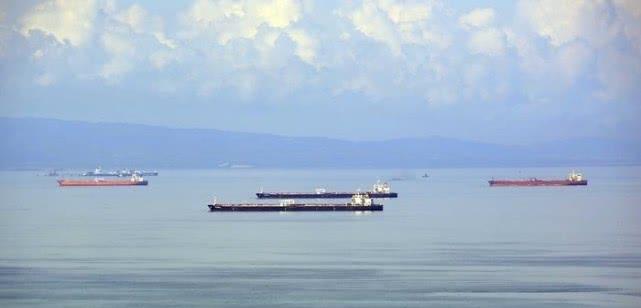
Recently, the "US warship intercepting the Giant Ship of the East" that has been hyped up in recent times has undergone a dramatic reversal. According to Iran's Tasnim News Agency reported on May 23, in the morning, the first of the five supertankers from the East, Fortune, had successfully arrived at the port of Caracas, the capital of Venezuela, unloading at least 1.5 million barrels of oil and related oil products. Four other ships are also speeding up their passage through the Atlantic high seas and are expected to enter the Exclusive Economic Zone on the Venezuelan Sea in the near future. Just a day earlier, Defense Minister Khatami, the supreme commander of Iran's armed forces, had just issued a warning to the United States that if U.S. warships dared to intercept any Iranian vessels, they would launch retaliatory attacks on U.S. targets around the world. Iran's Revolutionary Guard Commander Salami said earlier through the media that a large number of ballistic missiles have been aimed at US bases and ships in the Middle East, and even the slightest "violation" of Iranian oil tankers will be retaliated against by the US military than in January this year. At that time, Iran's Revolutionary Guards launched 16 ballistic missiles to attack the US military base in Iraq, which shook the world for a while.
Last week, tanker Trackers, a website that tracks international tanker data, was the first to expose that five giant ships from the East were sailing to Venezuela, which is tightly sealed by the United States, to alleviate the maduro government's fuel supply crisis. Subsequently, it was soon confirmed that the tankers belonged to Iran. Senior U.S. government officials told Reuters at the time that Washington would never allow iran and Venezuela, two countries under severe sanctions, to make a big deal. Iran's Fars News Agency previously reported that at least 4 Ali Burke-class Aegis destroyers, several Littoral Combat Ships and 1 Wasp-class amphibious assault ship have laid a lower layer of blockade lines in the Caribbean Sea, and a large number of P-8A "Poseidon" long-range patrol aircraft to provide support. The mission of these US warships and aircraft is to block the lifeline of Venezuela's sea while preventing Iranian oil tankers from transporting a large number of petroleum products that can be called "life-saving materials" to Venezuelan ports.
However, with the successful arrival of the first oil tanker "Fortune" in Venezuela, it was found that the US warships not only did not intercept these giant ships from the East, but instead gave a green light to release the whole process. Otherwise, Iranian tankers would not have been able to gain access to Venezuela's 200-nautical-mile exclusive economic zone. The Jerusalem Post quoted intelligence sources as saying that the tough positions expressed by Iran and Venezuela at the same time have affected the decision-making of the US military. If the US military insists on intercepting Iranian oil tankers, its bases and ships in the Middle East may be attacked by Iranian missiles, and Venezuelan warships and aircraft that have gone to sea to pick up oil tankers may also attack US ships. As a result, military conflicts in the Middle East and the Caribbean are bound to erupt, which is contrary to Washington's strategy of stabilizing these regions and concentrating on "competing powers." Anonymous senior Pentagon officials also admitted to the media that the global geopolitical situation is indeed different from the past, and the US military cannot make mistakes similar to the Afghan war "because of small mistakes".
The report stressed that with the arrival of five Iranian oil tankers, the Maduro government can finally breathe a sigh of relief. Although millions of barrels of petroleum products can only roughly guarantee Venezuela's use for a month, Iran's successful export of oil to Venezuela for the first time is not insignificant. For other countries, the U.S. government can also use the threat of sanctions to force them to abandon their purchase of Iranian oil, but it is useless for Venezuela, because the Maduro regime has suffered no less U.S. sanctions than Tehran. Some analysts believe that the reason why the Iranian oil tanker can be released by the US military is also related to the tough stance of Russia, the common ally of The Two Countries. Previously, the Russian Foreign Ministry has repeatedly warned that Russia will never allow interference and sabotage of Venezuelan affairs to happen.